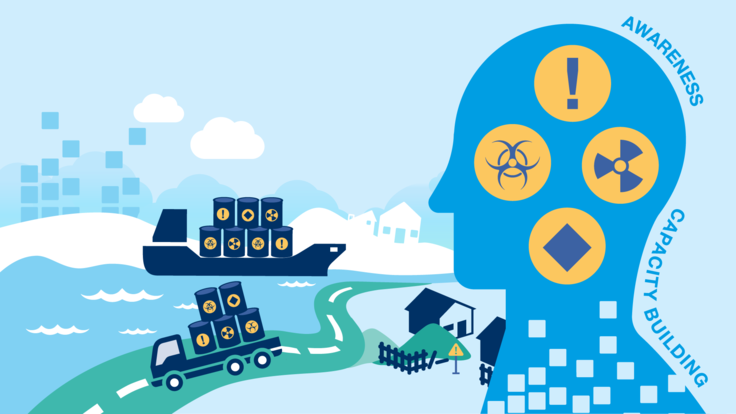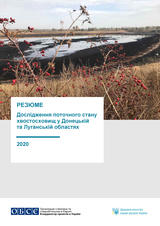
Hazardous waste management

The OSCE provides support to several participating States that are particularly threatened by hazardous waste and chemicals, including legacies of Soviet-era uranium mining.
Quick links
Overview
A threat to all OSCE participating States
Hazardous waste and chemicals, if not properly managed, can have a grave impact on the environment and public health. They can contaminate water, soil and the atmosphere. Mismanagement of hazardous waste and chemicals can also have serious safety and security implications. While hazardous waste and chemicals are a threat to all OSCE participating States, several states are exposed to high risks of contamination from hazardous waste accumulated at old industrial complexes, including legacies of Soviet-era uranium mining. Security risks are also posed by the illegal transboundary movement of hazardous waste, which is a lucrative international criminal business.

Hazardous Waste Management
Our work
Our thematic and programmatic tasks
In Central Asia, the OSCE, together with the United Nations Development Programme and the UN Environment Programme, has been supporting the engagement of stakeholders in uranium legacy remediation through the OSCE-supported Aarhus Centres in Kyrgyzstan, Uzbekistan and Tajikistan. This follows an undertaking, in the South Caucasus, where the Organization supported Armenia and Georgia by conducting a risk assessment related to the hazardous waste accumulated at Soviet-era industrial legacy sites and assisting with developing practical recommendations to reduce or eliminate these risks.
The Aarhus Centres are actively involved in raising awareness among the local population about the dangers of such radioactive waste.
In Eastern and South-Eastern Europe, the OSCE trains customs officers, border guards and environmental authorities to more effectively prevent the illegal transboundary movement of hazardous waste.
Additionally, the Organization supports participating States affected by the illegal movement of hazardous waste across country borders with the implementation of the Basel Convention on the Control of Transboundary Movements of Hazardous Wastes and their Disposal. The Basel Convention is the most comprehensive global environmental agreement and regulates transboundary movements of hazardous and other waste. Of the 186 parties to the Basel Convention, 54 are OSCE participating States.
News and activities
Current announcements, press releases, media advisories and other updates
Resources
Official OSCE documents, publications and other manually selected resources
Studies and reports
Reports, studies and analyses for policymakers, researchers and all those interested in this field of our work
Manuals and guides
Practice-oriented manuals, guides, handbooks and recommendations for policymakers and practitioners working in this field






